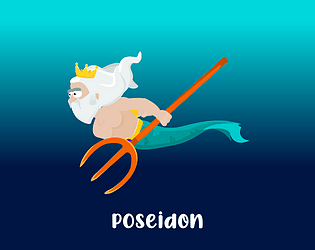

In her project, she also uses Cicero’s letters to create a social network and examines the positivity or negativity of correspondence between individuals: More relevant to the project at hand, Caitlin Marley of University of Iowa recently defended her dissertation “Sentiments, Networks, Literary Biography: Towards a Mesoanalysis of Cicero’s Corpus”, in which she examines the emotional plot of Cicero’s orations using sentiment analysis, a way of computationally determining the postive/negative emotion of a text or piece of text by tracking the use of positive and negative words throughout. Benjamin Hicks at Princeton is working on mapping Pliny’s letters. I am not, of course, the first person to look into the idea of mapping social networks in ancient epistolography. political topics? If so, how? The end-product will be freely available and, I hope, useful for those asking questions of Cicero’s letter collection and also as a pedagogical aid for those teaching about the late Republic. For example: does the portrait of social life meaningfully differ in letters on philosophical vs. Each relationship will be dated to allow the user to watch social relationships as they shift over time further, the relationships will have a number of attributes assigned to them, such as letter number, letter type, topic of letter, social status/ethnic origins of addressee, etc., that will allow the user to filter through the data and intuitively explore specific questions. My goal is to make an interactive ‘web’ of individuals represented in Cicero’s letters (addressors, addressees, and those named or alluded to within the bodies of the letters themselves) and their relationships with each other as the letters describe them. This is all quite cursory, and will all be followed up in greater depth in future posts as I get further along.
Io scansion ancient greek software#
With that in mind, I’d like to give a brief introduction to what I aim to achieve in the project, how I came to it, and the software I’m using.
Digital scholarship done in the open, we hope, will make what seems unapproachable approachable. We at ergaleia have encountered plenty of faculty members that are excited by the potential of new digital tools, but who don’t have a good sense of what digital research looks like in practice. Second, part of our goal with ergaleia is to emphasize the process of digital projects in addition to their – often exciting! – end results. First, I believe that doing scholarly work in public view – however anxiety-inducing – is a great way to get early and valuable feedback, especially in a project like this that requires proficiencies in many different areas.

Along the way, I’ll be posting brief updates here about the challenges I face and some of my decisions in structuring the project. Now that summer is here, I am excited to devote greater attention to this project. Github repo: #ancmakers /LAD0gkWIMd- Ryan Pasco January 14, 2018 Plan to import it into Gephi and analyze epistolary correspondence as a sort of 'social network'. Gathering up metadata on Cicero's letters. Mapping Social Life Through Cicero’s LettersĪs I’ve mentioned before on Twitter, I’m interested in using the visualization tool Gephi to explore social relationships in Cicero’s letters:


 0 kommentar(er)
0 kommentar(er)
